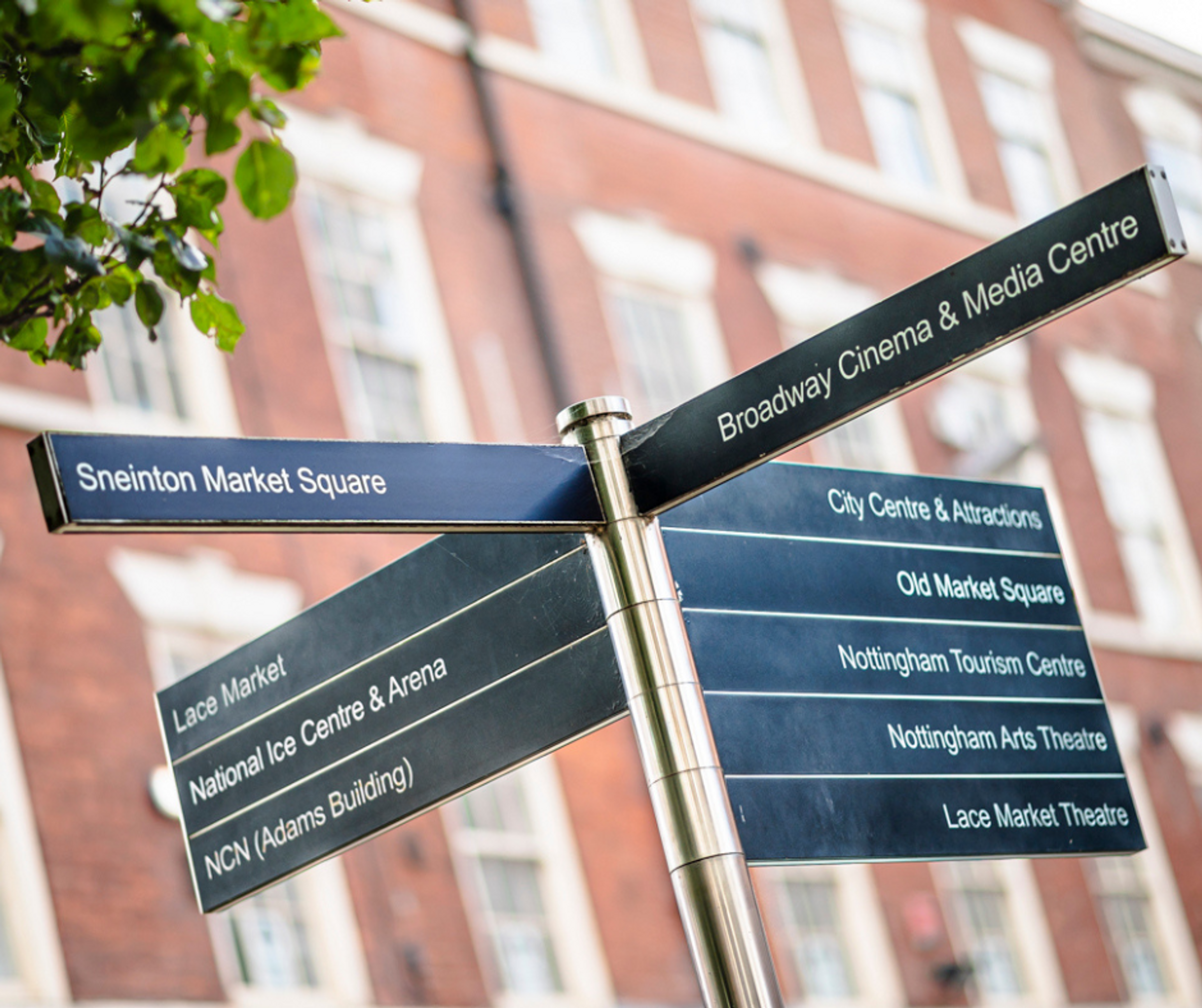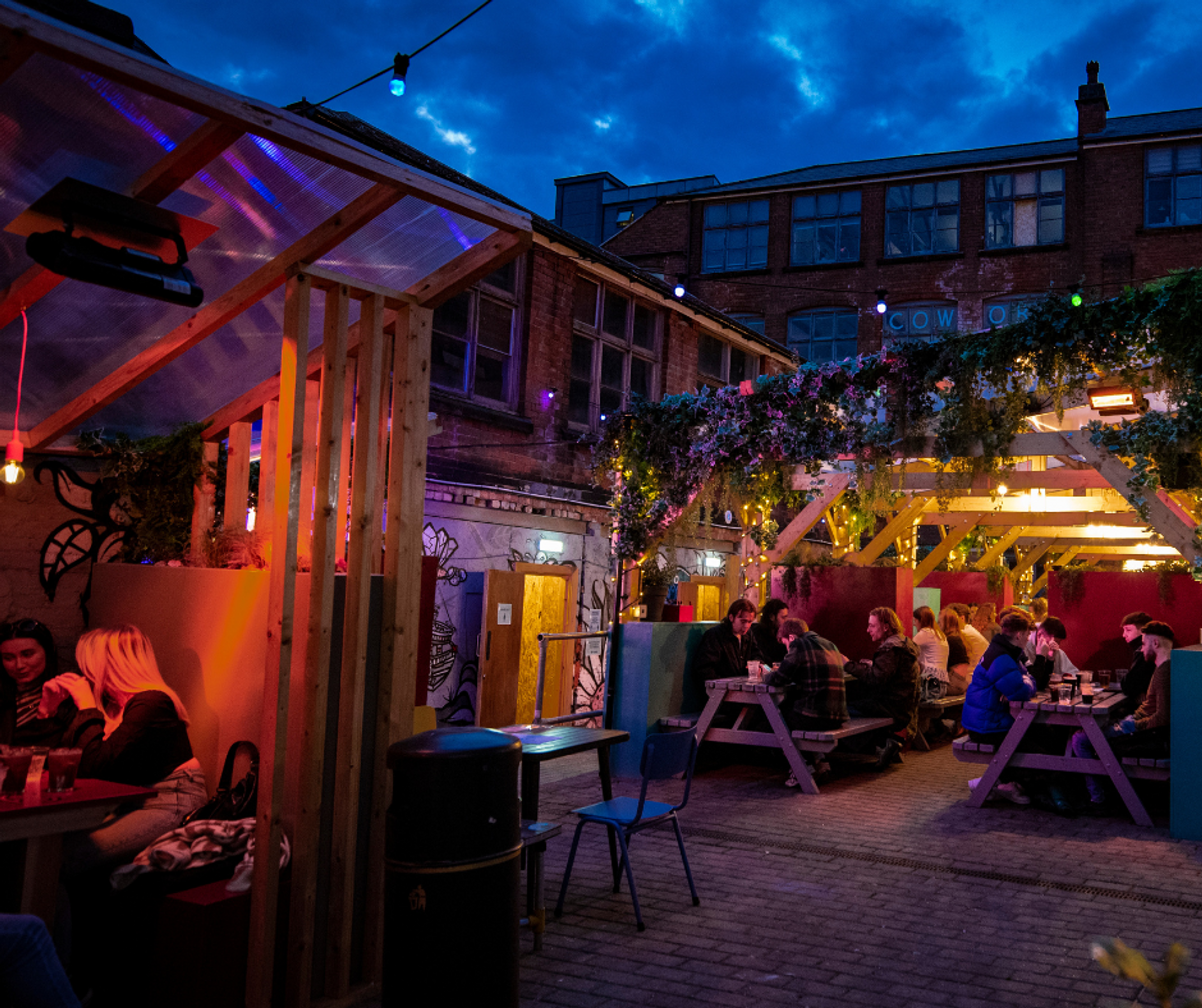UK-first bronze sculpture for Nottingham’s Green Heart

The National Justice Museum is delighted to confirm that over £250,000 has been raised to begin the casting of the life-size statue ‘Standing In This Place’, the first example of civic art of its kind in the UK.
Posted: Oct 2024
The National Justice Museum is delighted to confirm that over £250,000 has been raised to begin the casting of the life-size statue ‘Standing In This Place’, the first example of civic art of its kind in the UK.
The piece is the work of sculptor Rachel Carter and community history group the Legacy Makers and depicts two women in period costume - an enslaved woman working in the American cotton fields and a white woman working in the East Midlands’ textile mills.
Standing In This Place will be the UK’s first sculpture to recognise this transatlantic story as well as addressing the imbalance that less than 5% of Britain’s sculptures portray non-royal women. The site for the statue is already clearly marked in the recently opened Great Heart public park, adjacent to Nottingham Central Library.
Casting of the bronze piece has started at the Pangolin Editions sculpture foundry in Stroud. The foundry casts and fabricates sculptures for many of the foremost sculptors of our time, including Jonathan Yeo, David Bailey, and Damien Hirst.
The statue has received funding from many supporters, including the Art Fund, Sir Harry Djanogly CBE, Nottingham Regeneration Limited Trust, Nottingham Civic Society, Gedling Borough Council, Wilmott Dixon Construction Ltd, T. Bailey Asset Management, RL Management Ltd, Hallam Agency, Townshend Landscape Architects, and Framework Knitters Guild, along with many other generous public donors.
Jenny Waldman, Director of Art Fund, said “This new public sculpture for Nottingham from local sculptor Rachel Carter is the outcome of a powerful community arts project seeking to address the lack of women – particularly women of colour – represented in public art. I’m so pleased that Art Fund is able to support the National Justice Museum to acquire the first piece of public art for its collection.”
The National Justice Museum will be the custodians of this new bronze sculpture which is the first piece of public art that the National Justice Museum has acquired.
Bev Baker, the Senior Curator and Archivist for the National Justice Museum, said “We are extremely grateful for the support from donors towards making this unique public sculpture a reality. We especially appreciate the due diligence Art Fund took to ensure the project had been rigorously considered and represented the enormous contribution of the Legacy Makers and other participants and all the donors who have generously gifted financial support.
“The National Justice Museum represents justice in all spheres of life, so this is especially meaningful at a time when there has been divisive reaction to public sculpture associated with the history of the transatlantic trade of enslaved people. We have a collection and heritage site that is designed to challenge these narratives, so it is essential that such a powerful and evocative piece of work is displayed in a public space to raise awareness and draw in discussions on the history of enslavement, both historical and contemporary.”
Sculptor Rachel Carter acknowledges the vision shown by community-based groups Bright Ideas Nottingham and the Legacy Makers in achieving the statue.
“We have been on quite a journey to discover the history of slavery in our region. Using a grant from the Heritage Lottery Fund, the community project has gone from scrutinising nineteenth century burial slabs of mill workers in Darley Abbey, where I found my own ancestors, to attracting Arts Council Funding in 2022 for creative workshops.
This sculpture will give representation to the under-represented and give voice and recognition to the contributions of thousands of unnamed women who were the driving forces behind the East Midlands cotton textile industry during Industrialisation.”
Jenny Wizzard, a member of the Legacy Makers group, added “This project highlights for me the important economic, social, and cultural forced labour contribution that people of African descent. They were coerced, enslaved, and transported to the Americas and Caribbean, and their work enabled the wealth and development of Western countries over many centuries. We are delighted that this project brings long overdue recognition and the legitimate right to claim our role in British and world history. Standing In This Place acknowledges the triumph of being; it sees the two women’s resilience whilst experiencing exploitation as enslaved Africans and as white women mill workers in an era that lay the foundations of the societies we now live in.”
On Sunday 1 December, Broadway Cinema in Nottingham will host an exclusive screening event with Ebony Reels, exploring the development of this project and the process behind beginning the casting.
For more information about the project, and the many communities and organisations involved, visit https://www.standinginthisplace.co.uk/
Share Article:
More Stories









